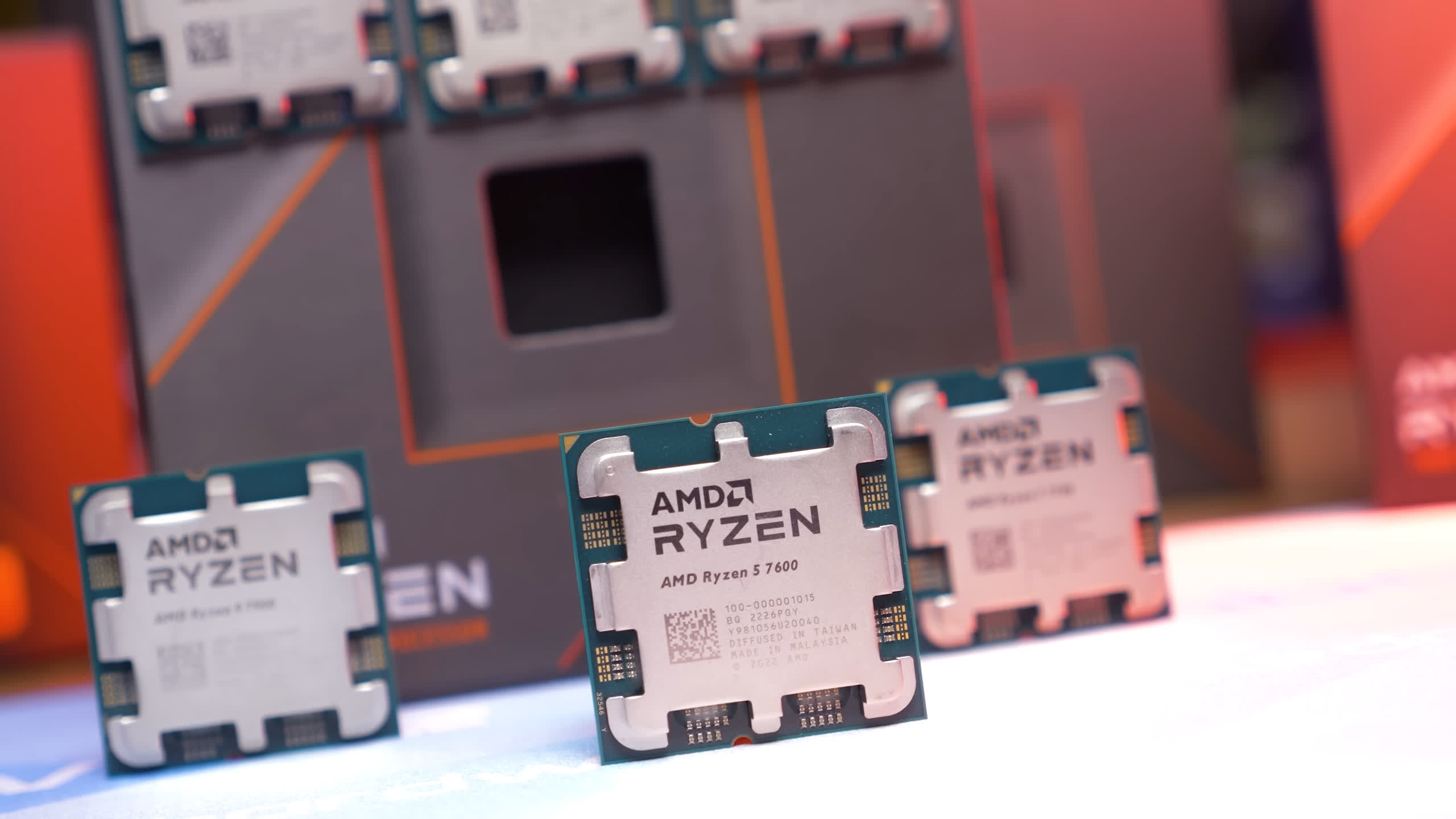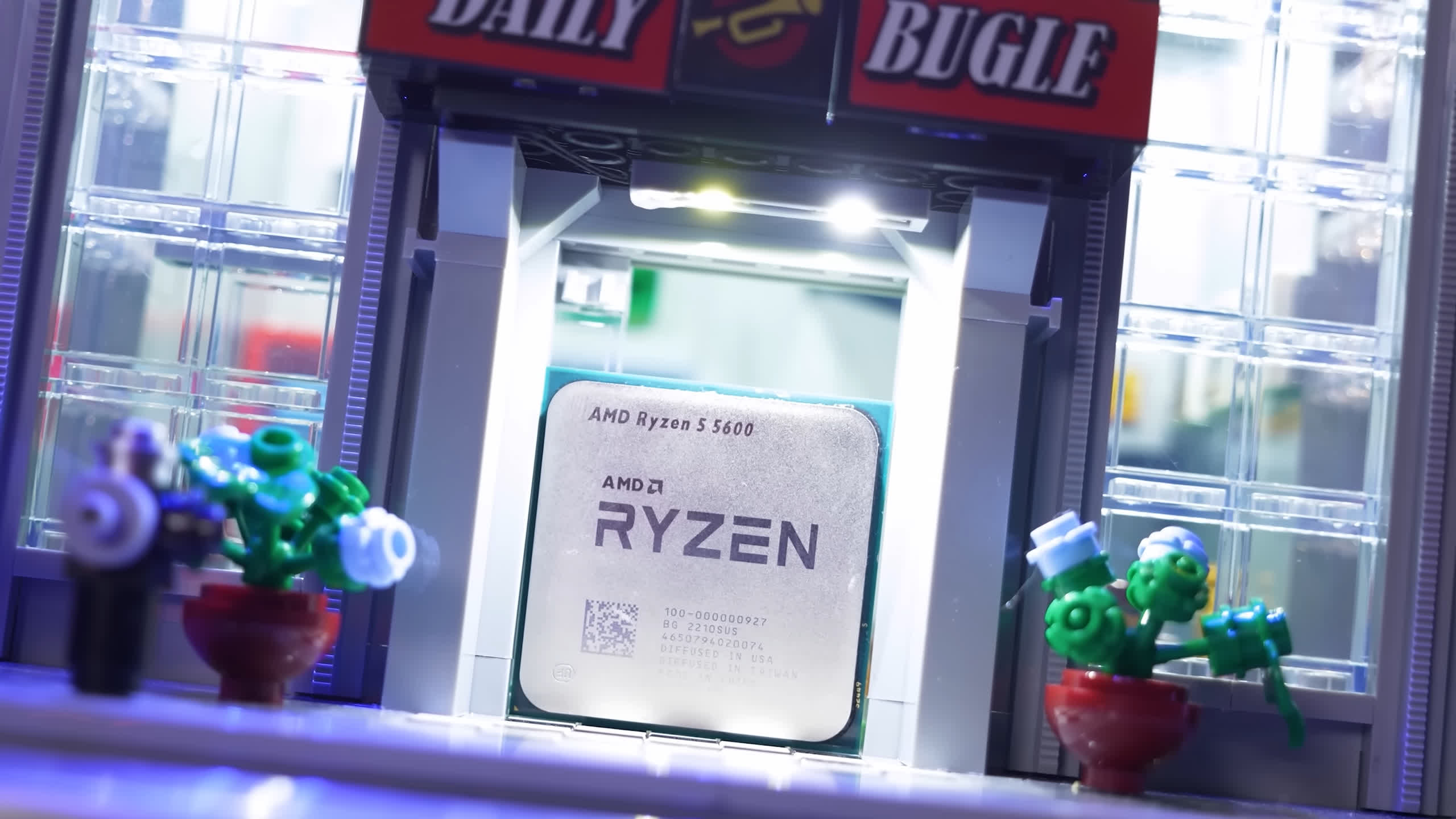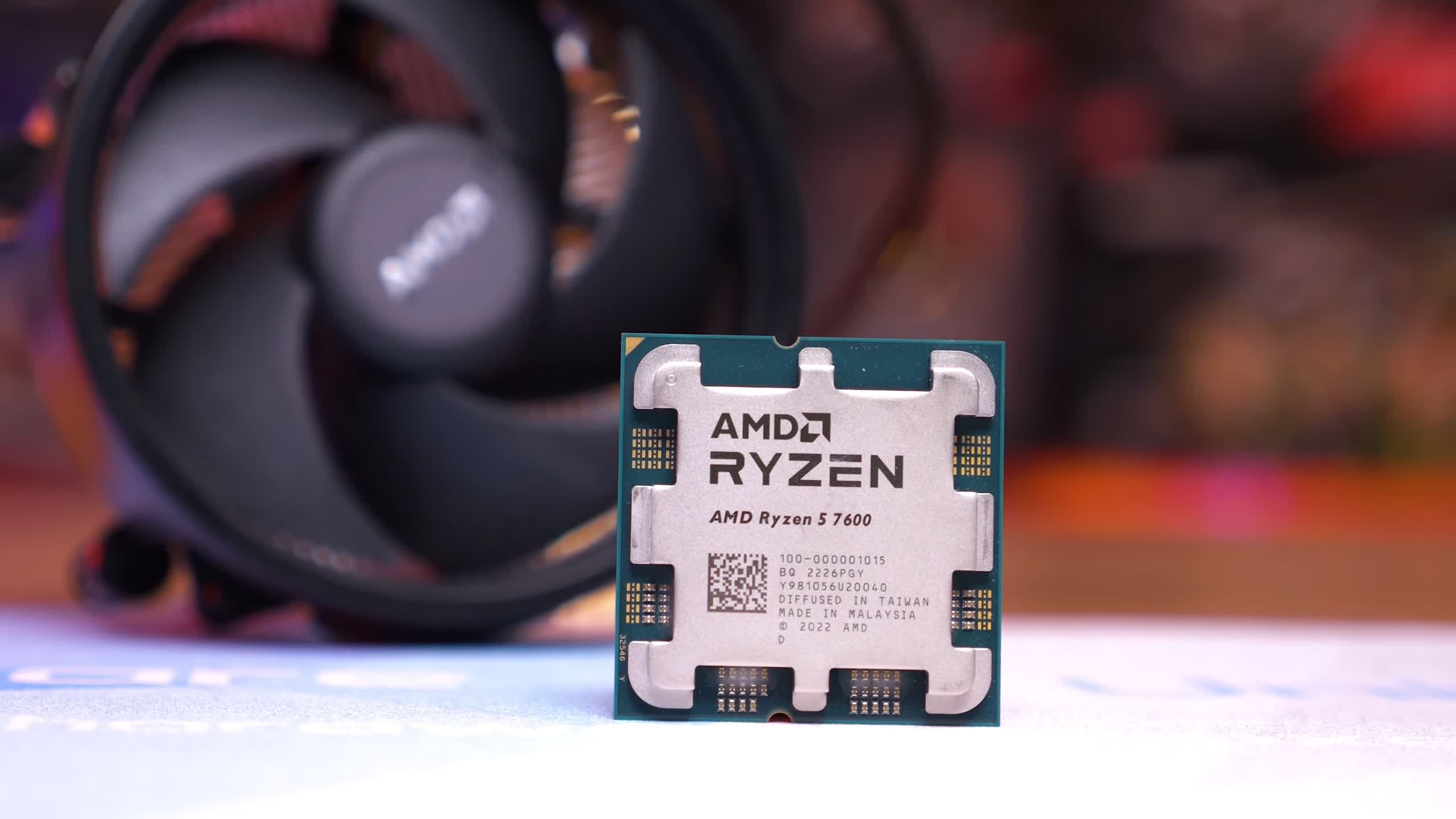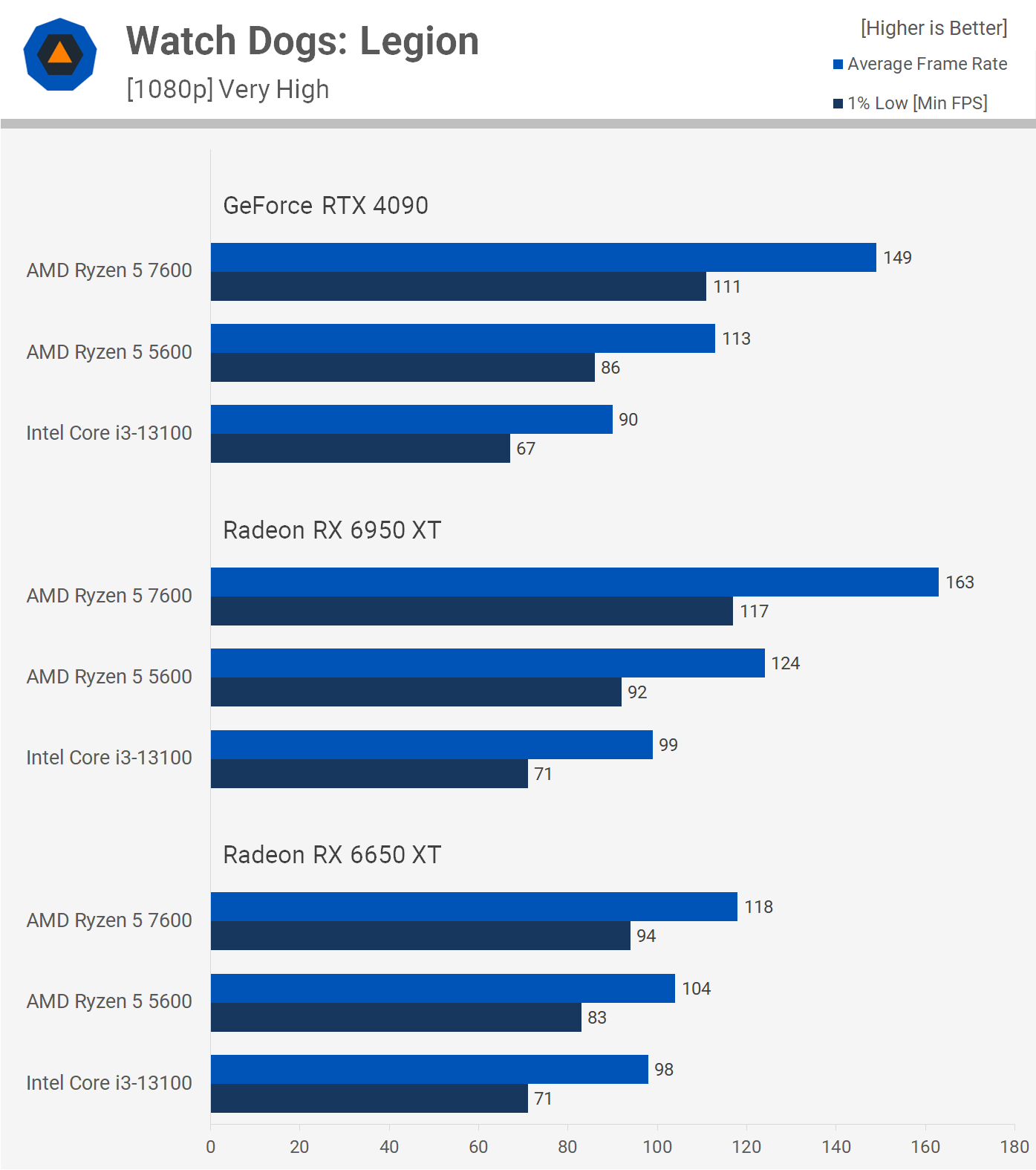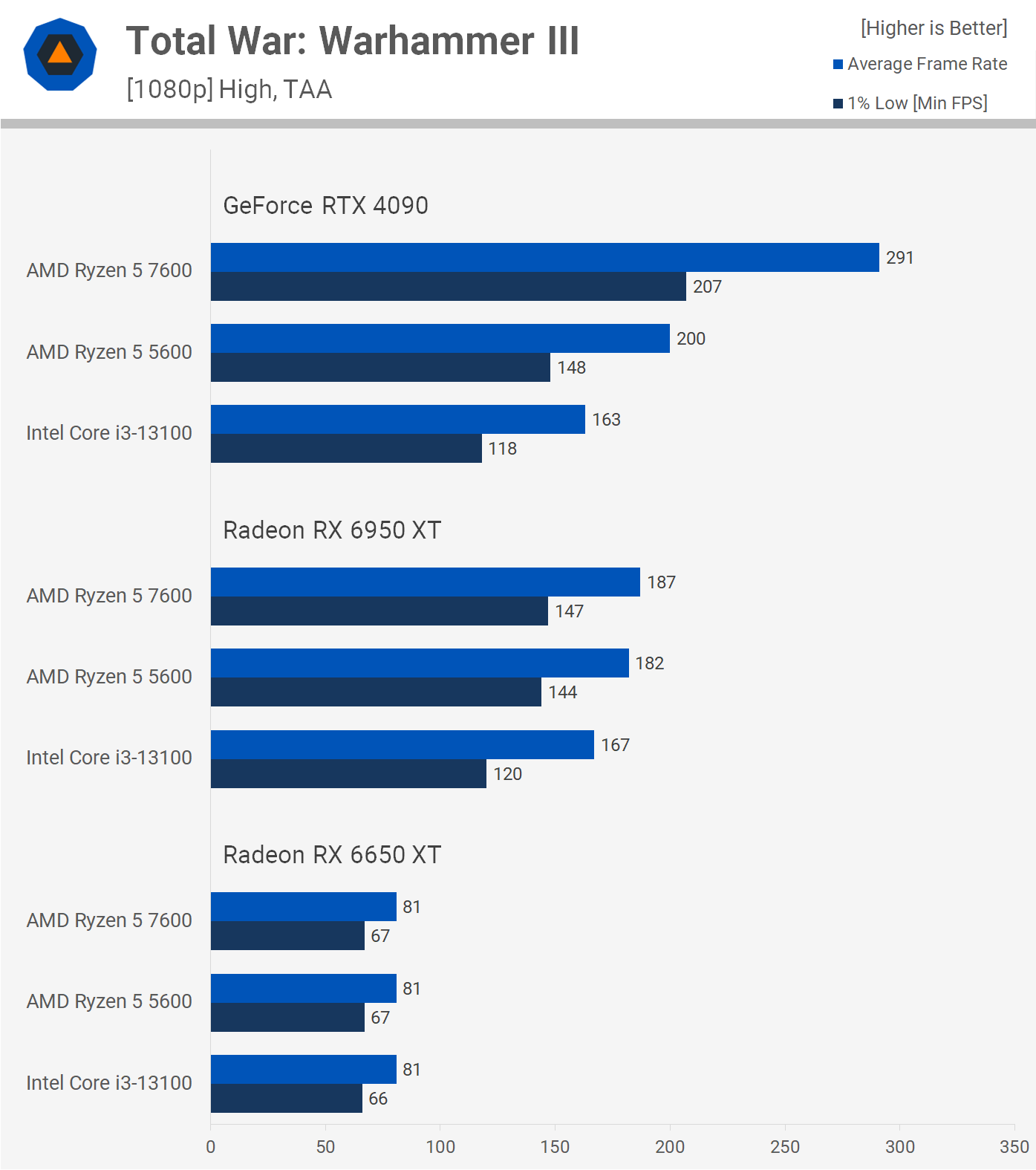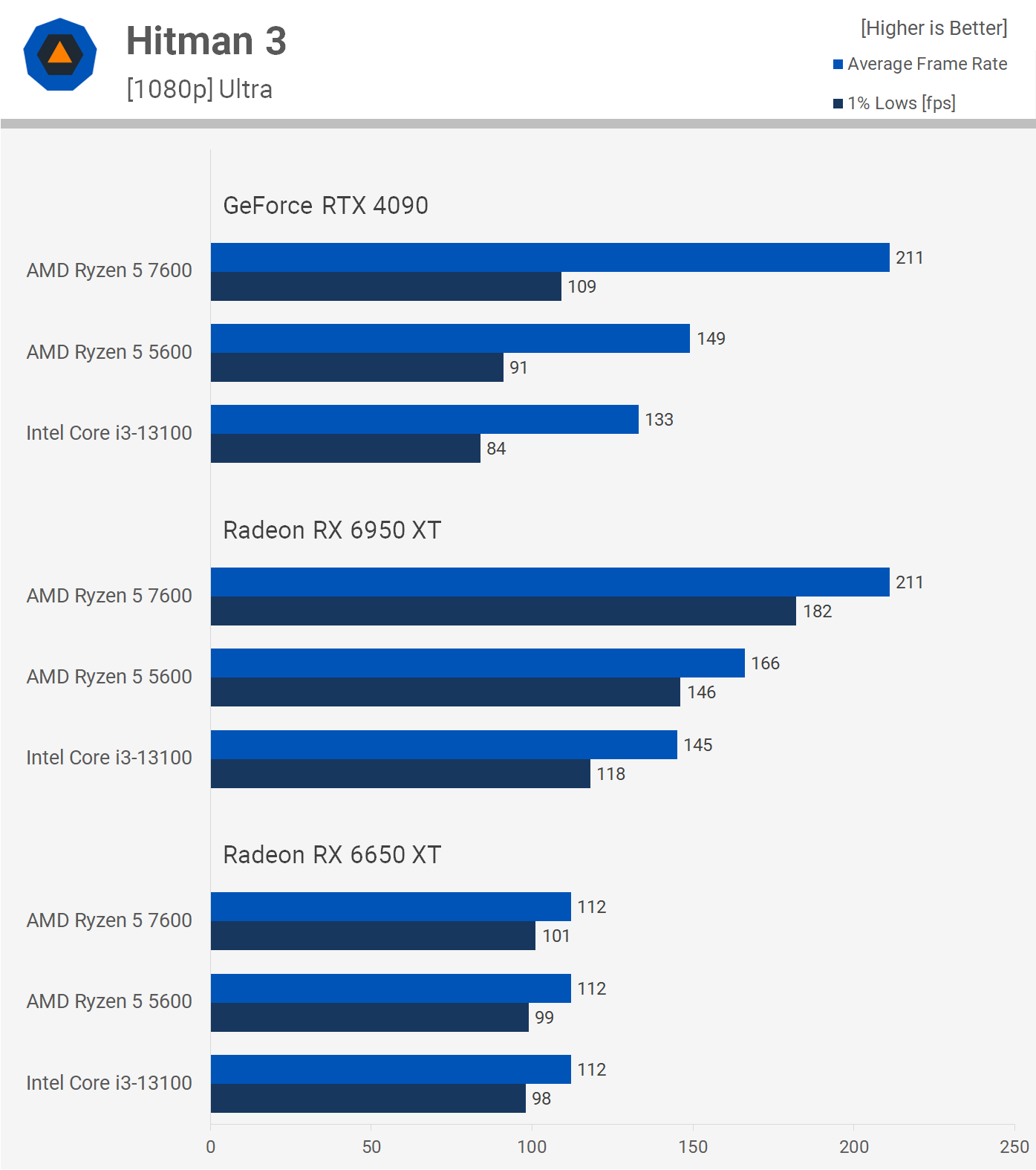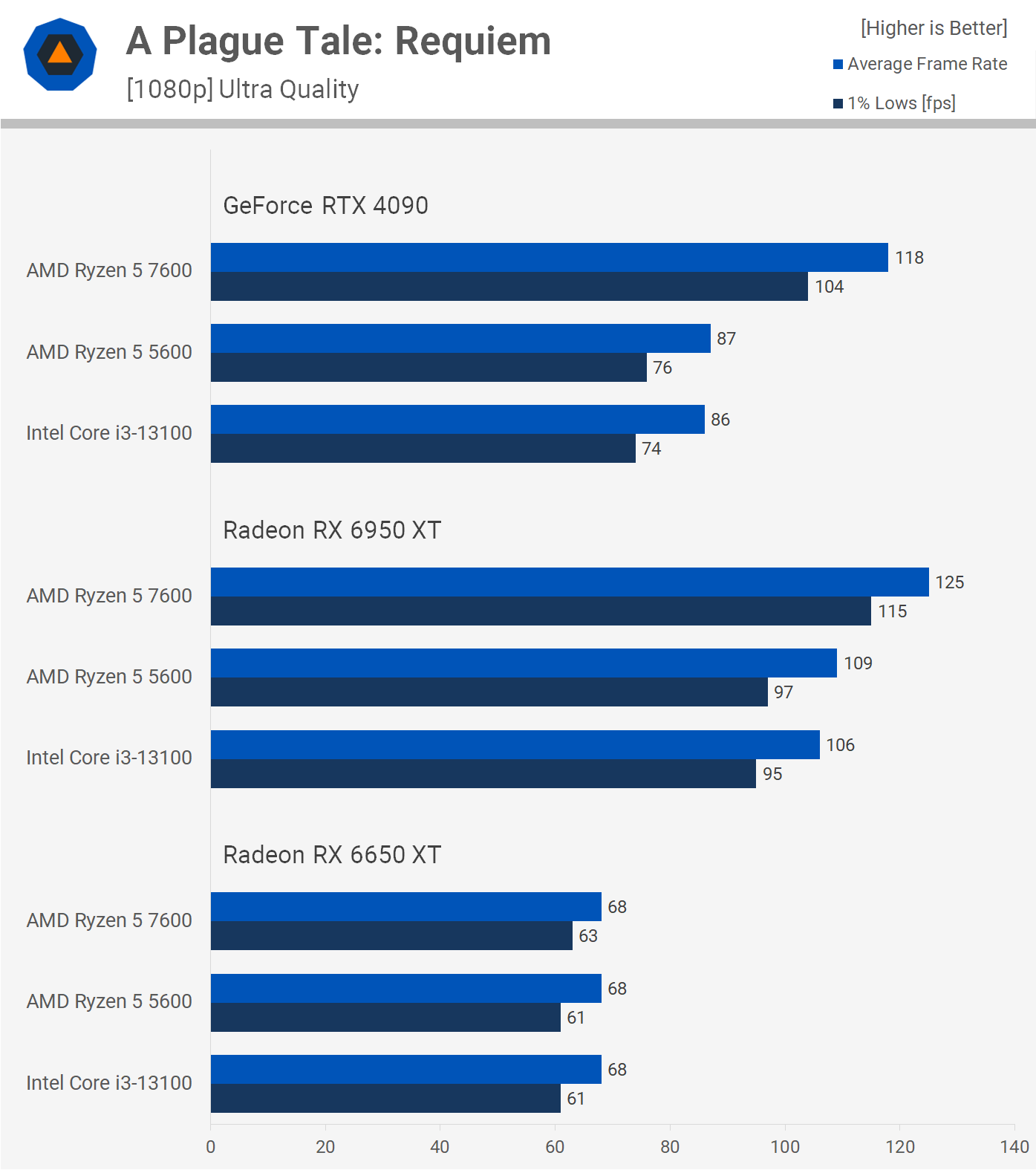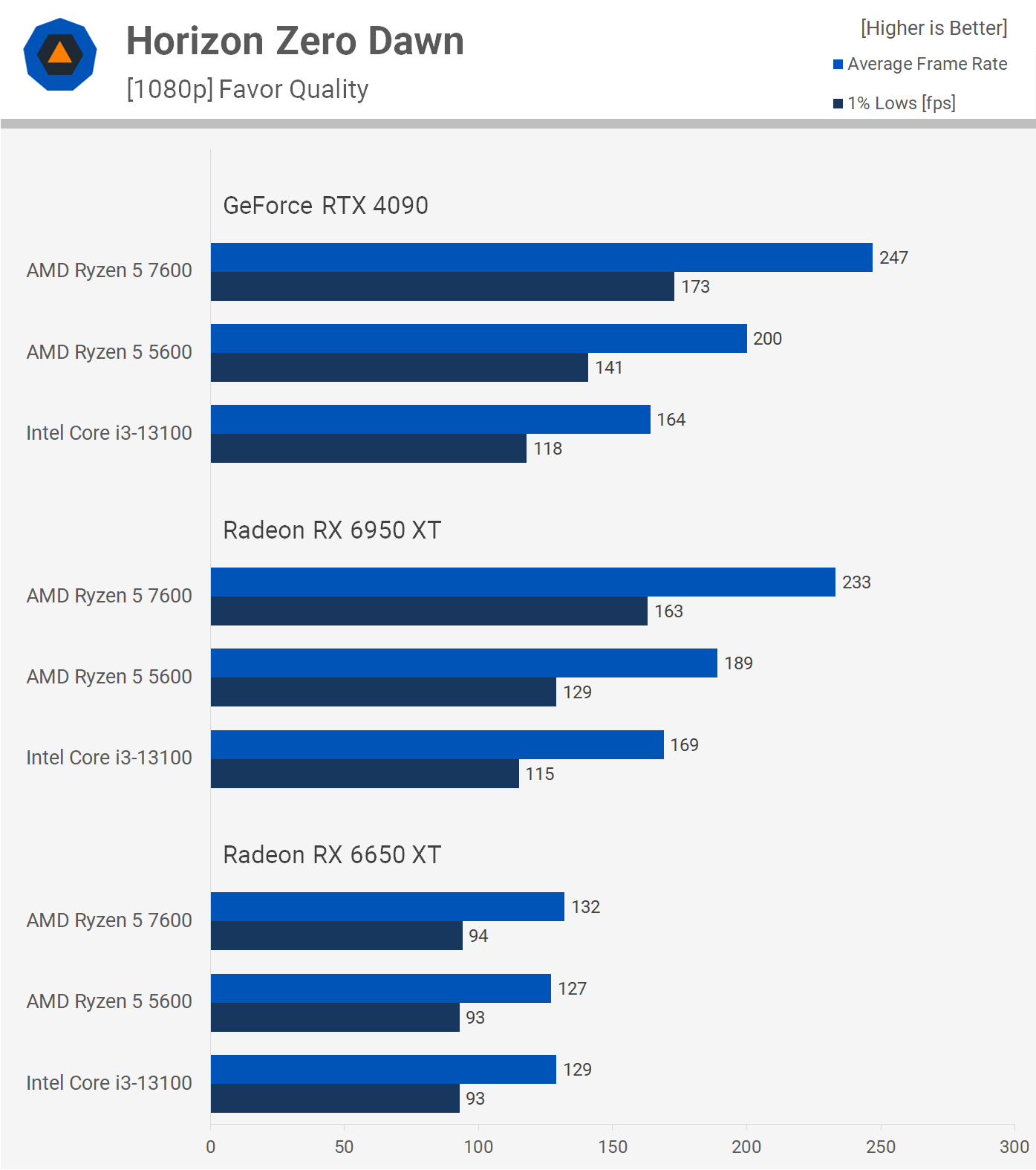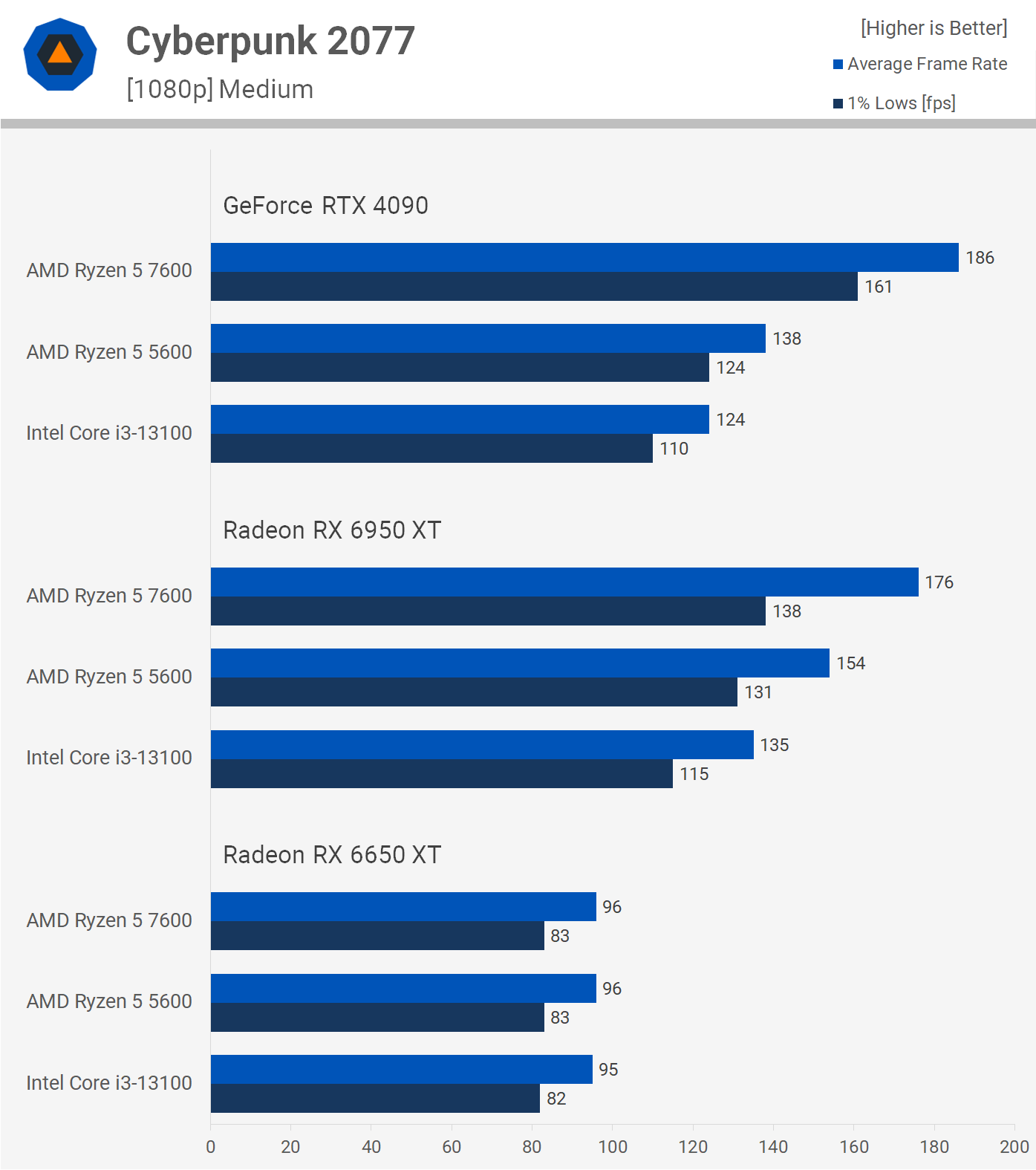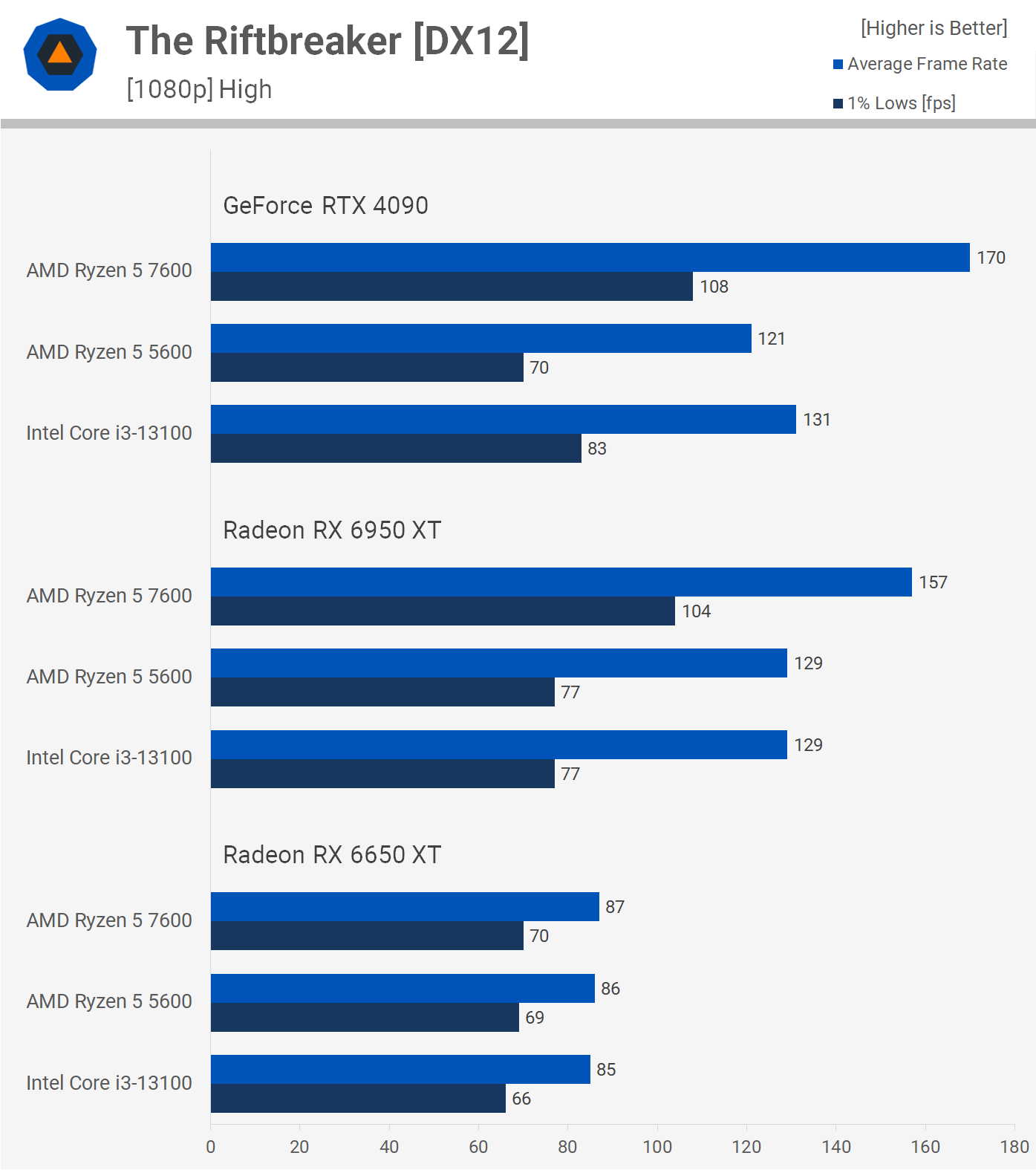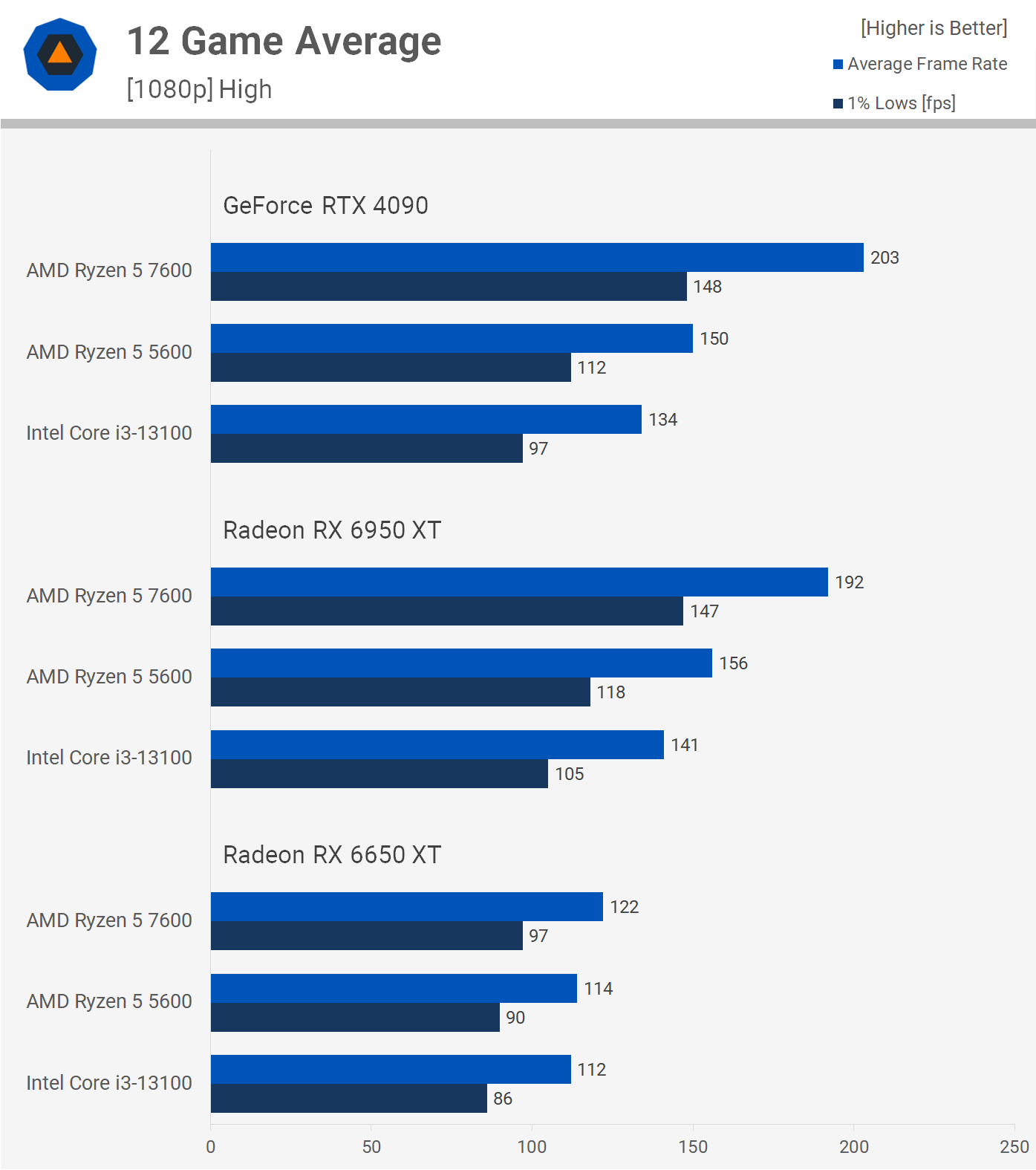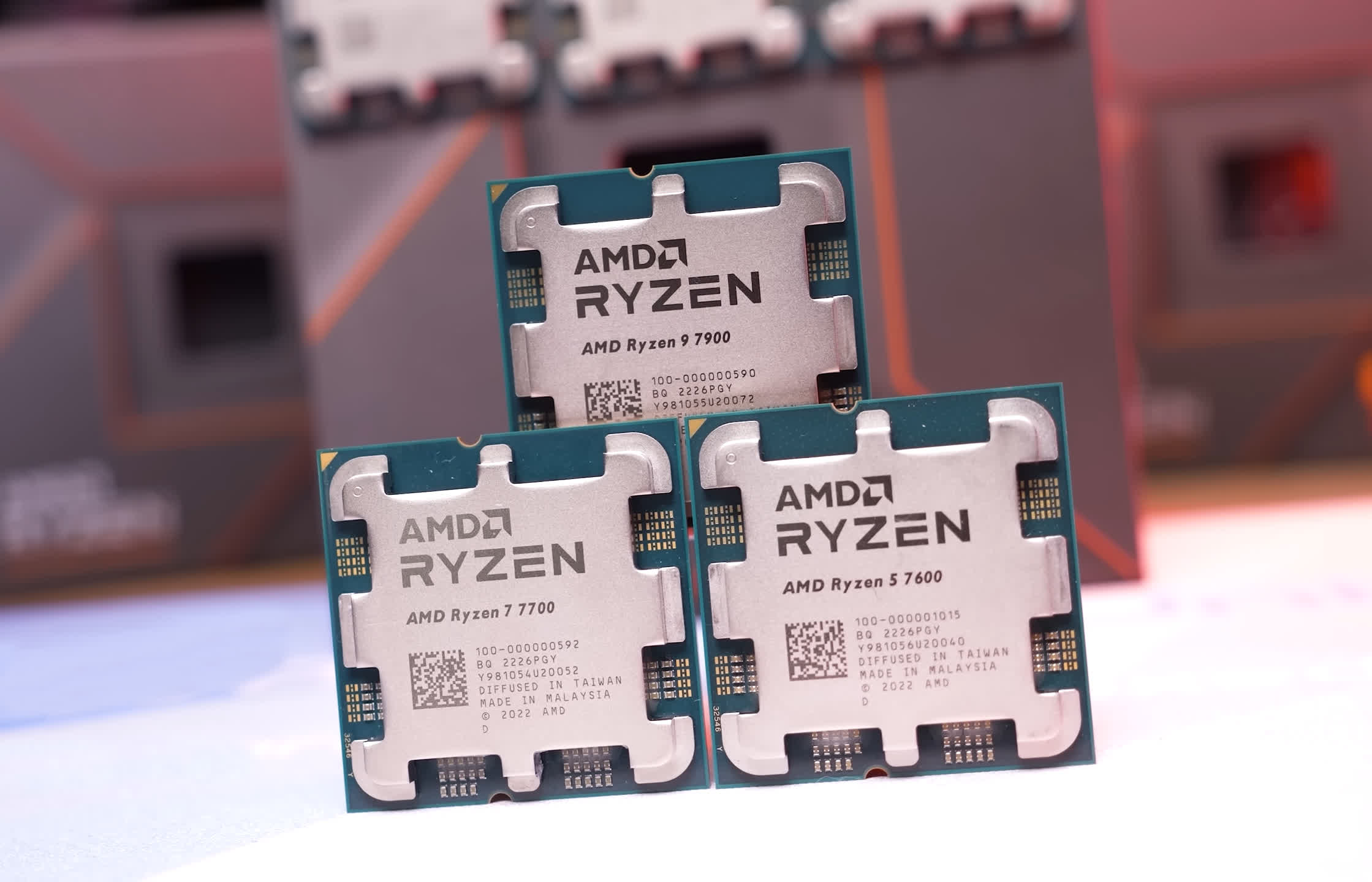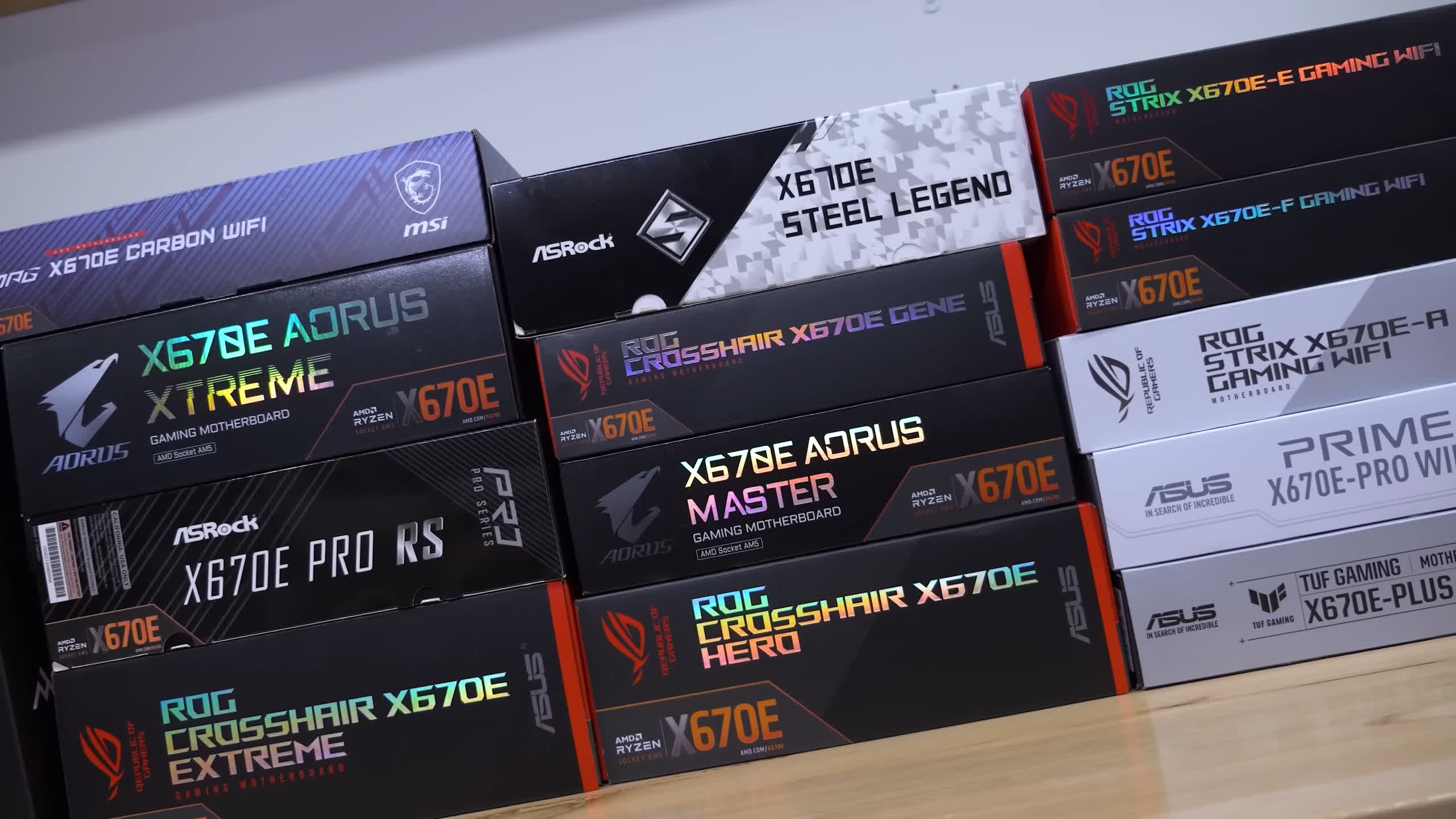AMD's Ryzen 5 7600 and Ryzen 5 5600 are admittedly in two distinct product classes with well differentiated price points and unlike previous generations, one is not set to replace the other (at least not for now). But in this feature we want to work out at which point the jump up from the affordable Ryzen 5600 to the relatively expensive 7600 makes sense, so that's what we'll be doing in this CPU and GPU scaling benchmark.
We recently updated our cost per frame CPU data and found that a well equipped Ryzen 5 5600 platform would cost $365, while a similarly equipped 7600 configuration was 53% more expensive at $560. Across the 10 games tested, the Zen 4 processor was 33% faster on average, which helped to improve its value, but even so it was still more costly per frame.
Naturally, for those of you already on the AM4 platform using an older generation processor or if you have a good quality DDR4 kit you want to carry over, the 5600 is going to be a no brainer, as it presents as a significantly cheaper upgrade.
But if you're building an entirely new PC from the ground up, which you're really forced to do with the 7600, is the newer Zen 4 processor and its more future-proof AM5 platform worth the investment?
For those of you also looking at buying a high-end GeForce 40 or Radeon 7000 series GPU – yes – we'd say the upgrade to Zen 4 is worth it over Zen 3, but what about if you're using a previous generation GPU?
Slower GPUs will see most gaming situations more GPU limited than CPU limited, and therefore the difference between the 5600 and 7600 will be far less obvious, but of course, that all changes when you upgrade to a faster graphics card in the future, which is why CPU-limited CPU tests make the most sense, but a lot of you enjoy the GPU scaling benchmarks, so let's get into it...
Benchmarks
First up we have Watch Dogs: Legion using the very high quality preset at 1080p, and when armed with the RTX 4090 the Ryzen 7600 delivered 32% more performance than the 5600, hitting 149 fps.
The margins were much the same using the Radeon 6950 XT, though frame rates were higher overall due to Nvidia driver overhead which often rears its ugly head in CPU-limited scenarios.
Now using the much more modest Radeon 6650 XT we see that the Ryzen 7600 is now just 13% faster than the 5600, which admittedly is still a reasonable margin, but certainly doesn't come close to justifying the price premium.
The Total War: Warhammer III results are interesting, and probably more like what you'd typically expect to see from a CPU/GPU scaling benchmark featuring three very different GPU performance tiers.
Using the RTX 4090, the Ryzen 7600 was a massive 46% faster than the 5600, reaching almost 300 fps. But when downgrading to the Radeon 6950 XT which is still a very powerful GPU in this test, producing almost 200 fps on average, the 7600 was just 3% faster than the 5600.
Then when testing with the 6650 XT we see no difference in performance. So for a game like Warhammer III, the 7600 just isn't worth it over the 5600. But if the GeForce RTX 4090 results are any indication of future gaming performance, then the 7600 would be worth the premium, the question is, when will that future become a reality?
Hitman 3 has a mixed bag of results for us. Firstly, using the RTX 4090 we see that the 7600 is 42% faster than the 5600, so a seriously big performance advantage for the new Zen 4 processor here. But that margin is closed down to 27% with the 6950 XT, still a big win for Zen 4, but with less driver overhead with the Radeon GPU, the slower 5600 performs much better.
Then once we move down to the Radeon 6650 XT the performance margins are neutralized as the results become 100% GPU limited.
A Plague Tale: Requiem results are interesting. The Ryzen 5 5600 and Core i3-13100 really get smashed by the Nvidia overhead using the RTX 4090, but this is far less of an issue for the more powerful Ryzen 7600, though it was still 6% faster using the 6950 XT under these test conditions.
Point is though, using the RTX 4090 the 7600 was 36% faster than the 5600, while that margin is reduced to just 15% with the 6950 XT, and then completely neutralised with the 6650 XT.
Call of Duty: Modern Warfare II is a game where at least 200 fps is advantageous, and as a competitive shooter it's a game where the more serious players will opt for lower quality settings, not just to improve frame rates, but in fact more so to improve the players ability to spot enemies.
So this is an example where a more powerful CPU such as the Ryzen 7600 is of real benefit, delivering 42% more frames than the 5600 using the GeForce RTX 4090, though that margin is reduced to 28% using the 6950 XT.
For most gamers the 190-ish frames per second delivered by the Radeon 6650 XT will be enough and if you fall into that category then for the most part the Ryzen 7600 has little to offer. But as the 4090 and 6950 XT demonstrated, for the more demanding sections of the game it's possible the 7600 will deliver much better performance than the 5600, even with a lesser GPU.
The big advantage for the Ryzen 7600 in Spider-Man Remastered is its use of DDR5 memory.
Armed with the RTX 4090 the 7600 provided 35% more frames than the 5600, going from 82 fps to 111 fps. That margin remained much the same using the 6950 XT and interestingly both Ryzen CPUs were slower with the 6950 XT, while the more CPU limited Core i3-13100 actually received a performance boost.
Then with the Radeon 6650 XT the results become largely GPU limited, though the 7600 still managed to best the 5600 by an 8% margin.
The Shadow of the Tomb Raider scaling is very typical, using the RTX 4090 the 7600 was 34% faster than the 5600 and that margin was reduced to 20% with the 6950 XT as the 7600 became GPU limited. Then with the 6650 XT all three CPUs are heavily GPU limited at around 110 fps, which admittedly is more than enough performance to fully enjoy this title.
Scaling in Horizon Zero Dawn is similar to that of Shadow of the Tomb Raider, the Ryzen 7600 is 24% faster using the RTX 4090 and 23% faster with the 6950 XT, so a clear performance advantage for the newer Zen 4 processor.
But by the time we get down to the Radeon 6650 XT, the results are entirely GPU limited with less than a 5% performance deviation.
In Cyberpunk 2077, the Ryzen 7600 delivered 35% more performance than the 5600 using the RTX 4090, a massive performance advantage for the newer Zen 4 processor. However, switching to the 6950 XT reduces that margin to 14% as the Radeon GPU improves the performance of the 5600 by 12%, while the 7600 is now GPU limited, reducing performance by 5%. As you'd expect we're GPU limited using the 6650 XT, and this saw all CPUs delivering 95 - 96fps.
The ACC results are all heavily CPU limited, regardless of the GPU used. Using the Radeon GPUs the 7600 was 35% faster than the 5600 and quite oddly that margin is reduced to 28% with the RTX 4090. Still, at around 30% faster than the 5600, the newer Zen 4 processor is offering massive performance gains in this title.
The Riftbreaker doesn't require massive frame rates, so any of these CPUs will work fine, but using it as a tool to measure performance we find that the 7600 is 40% faster than the 5600 using the RTX 4090 and then 22% faster with the 6950 XT before the data becomes entirely GPU limited with the 6650 XT.
CS:GO like ACC is another game that's heavily CPU limited. As a result, the Ryzen 7600 was ~26 to 28% faster than the 5600 across the board, even when using the 6650 XT.
12 Game Average (1080p)
Using a GeForce RTX 4090 we see that the Ryzen 7600 was on average 35% faster than the Ryzen 5600, though that margin is reduced to 23% with the Radeon 6950 XT. It's interesting to note that the Ryzen 5600 was faster using the 6950 XT, while the opposite is true of the 7600, which is explained by Nvidia's overhead issue which hurts CPU performance when utilization is high.
Thanks to heavily CPU limited titles such as CS:GO and ACC we can see that the Ryzen 7600 is still 7% faster on average using the Radeon 6650 XT, though this isn't the kind of margin that would get you to invest in a Zen 4 processor.
What We Learned
There's no denying that the Ryzen 5 7600 is much more powerful than the 5600, and we have just seen it improving gaming performance by around 30% in most typical scenarios, but often more than that when heavily CPU limited.
You won't always need an extreme GPU such as the RTX 4090 to see the difference, the upgrade from the Ryzen 5600 to the 7600 could certainly be justified with a more affordable graphics card, but at the same time it's not going to be all that beneficial for everyone.
For most Ryzen 5 5600 owners, the upgrade to the 7600 is a bit pointless. As we noted earlier, the upgrade to the 7600 will cost at least $560 for a basic B650 board and a 32GB kit of decent DDR5 memory. A better alternative for AM4 owners looking to achieve 7600-like performance is the 5800X3D, currently available for $340, roughly a 40% discount when compared to the 7600 upgrade for basically the same level of performance.
However, if you're a new system builder tossing up between these two CPUs, the choice is a lot more difficult, or maybe it's not... Obviously, if you want to spend as little money as possible the Ryzen 5600 is the way to go, but if you're looking to maximize your investment, the Ryzen 7600 might be a smarter choice.
Although the Ryzen 7600 package costs at least 53% more, we saw on average 30% more performance with a relatively high-end GPU. That's a solid performance uplift that adds to the value of the 7600 in the AM5 platform, which will support future CPUs.
The affordable and easy 5800X3D upgrade situation for 5600 owners (or anyone with a much older AM4 processor today), could be the same situation Ryzen 7600 owners are faced with in a few years' time. Of course, we don't know how the AM5 story will play out, but we know how AM4 has played out, and that story has now ended.
Ultimately, there's no right or wrong choice here. Both CPUs are very viable options in our opinion. The Ryzen 5600 remains a perfectly capable gaming CPU, especially if you're using a more modest GPU and tend to play mostly single player titles though it's still very capable for competitive multiplayer gaming.
The newer Ryzen 7600 will generally take performance to the next level. So it's up to you to decide which option is best for you, which may be dictated by your budget and if you already own an AM4 motherboard or not.
Shopping Shortcuts:
- AMD Ryzen 5 5600 on Amazon
- AMD Ryzen 7 7600 on Amazon
- AMD Ryzen 7 5800X3D on Amazon
- AMD Ryzen 5 7700 on Amazon
- AMD Ryzen 9 7900 on Amazon
- Intel Core i5-13600K on Amazon
- Intel Core i7-13700K on Amazon
Further Testing
Since we published this review, we have run additional benchmarks and new reviews around mainstream Ryzen CPUs. Here are featured articles you may be interested in:
